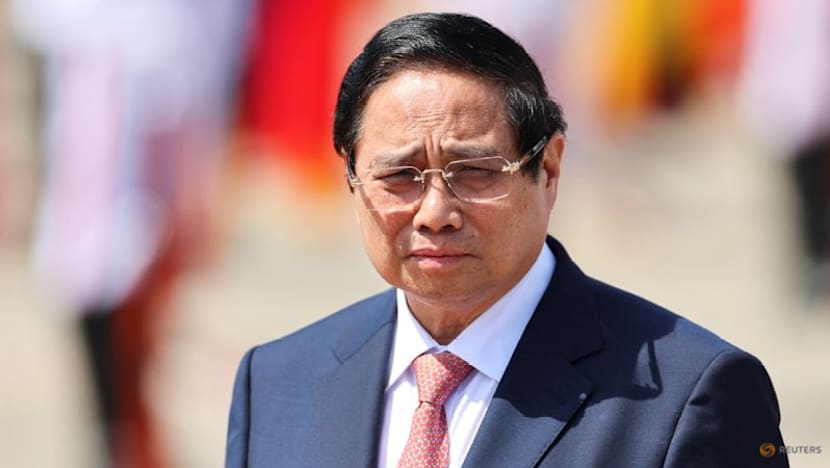World
Vietnam Seeks New Trade Deals to Offset US Tariffs

Vietnam’s Prime Minister, Pham Minh Chinh, announced a strategic effort to pursue new trade agreements this year aimed at countering the financial repercussions of tariffs imposed by the United States, the country’s largest export market. This statement was made shortly after the United Nations Development Programme released estimates indicating that US tariffs could potentially reduce Vietnam’s exports to the US by as much as one-fifth, making it the most affected country in Southeast Asia.
During a press briefing on September 20, 2023, Chinh emphasized the anticipated challenges that Vietnamese exports will face, citing factors such as “strategic competition, conflicts, and the US’s ‘reciprocal’ tariff policies.” Despite these challenges, he expressed optimism, projecting a growth rate of over 12 percent for exports in 2023. Government data shows that exports from Vietnam increased by 15.8 percent year-on-year, reaching $325.3 billion by September 15, 2023.
Strategic Partnerships on the Horizon
To mitigate the impact of US tariffs, Chinh highlighted Vietnam’s goal to finalize free trade agreements with the Mercosur trading bloc in Latin America and the Gulf Cooperation Council countries by the end of 2023. These agreements are seen as crucial for expanding Vietnam’s trade networks and diversifying its export markets.
Negotiations with the United States are also set to continue, particularly after the Trump administration implemented a 20 percent tariff on a majority of Vietnamese goods. This move has raised significant concerns for Vietnam, prompting officials to take action to bolster their trade relations with the US.
Addressing Import Concerns
In addition to pursuing new trade deals, Chinh instructed government officials to strengthen enforcement against imported goods that may violate international copyright laws or have questionable origins. These issues have been consistently flagged by US officials as significant obstacles to improving bilateral relations.
The White House has also introduced a 40 percent tariff on products identified as being transshipped through Vietnam, which poses a considerable risk if the US decides to implement strict regulations on foreign components in exported goods. Given that a large portion of Vietnam’s exports relies on Chinese components, such measures could have widespread ramifications.
As Vietnam navigates the complexities of international trade amid evolving global dynamics, the government’s proactive approach aims to safeguard the nation’s economic interests and foster robust trade relationships.
-

 Lifestyle4 months ago
Lifestyle4 months agoHumanism Camp Engages 250 Youths in Summer Fest 2025
-

 Business5 months ago
Business5 months agoKenvue Dismisses CEO Thibaut Mongon as Strategic Review Advances
-

 Sports4 months ago
Sports4 months agoDe Minaur Triumphs at Washington Open After Thrilling Comeback
-

 Sports5 months ago
Sports5 months agoTupou and Daugunu Join First Nations Squad for Lions Clash
-

 Top Stories5 months ago
Top Stories5 months agoColombian Senator Miguel Uribe Shows Signs of Recovery After Attack
-

 World5 months ago
World5 months agoASEAN Gears Up for Historic Joint Meeting of Foreign and Economic Ministers
-

 Health4 months ago
Health4 months agoNew Study Challenges Assumptions About Aging and Inflammation
-

 Business5 months ago
Business5 months agoOil Prices Surge Following New EU Sanctions on Russia
-

 Entertainment4 months ago
Entertainment4 months agoDetaşe-Sabah Violin Ensemble Captivates at Gabala Music Festival
-

 Entertainment4 months ago
Entertainment4 months agoBaku Metro Extends Hours for Justin Timberlake Concert
-

 Top Stories5 months ago
Top Stories5 months agoRethinking Singapore’s F&B Regulations Amid Business Closures
-

 Business5 months ago
Business5 months agoU.S. House Approves Stablecoin Bill, Sends to Trump for Signature









